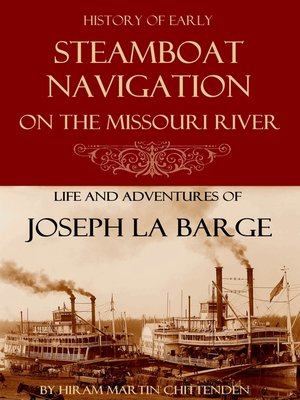
Sign up to save your library
With an OverDrive account, you can save your favorite libraries for at-a-glance information about availability. Find out more about OverDrive accounts.
Find this title in Libby, the library reading app by OverDrive.



Search for a digital library with this title
Title found at these libraries:
| Library Name | Distance |
|---|---|
| Loading... |
No less authority than Hiram Chittenden wrote this marvelous history of the early days of one of America's most important waterways. A West Point engineer, namesake of the Hiram Chittenden locks in Seattle, Chittenden was a respected historian of early western America. There was no railroad system in the United States whose importance to its tributary country was relatively greater than was that of the Missouri River to the trans-Mississippi territory in the first seventy-five years of the nineteenth century. Through the earliest days of navigation on the great Missouri, through its use in the Civil War, the Indian Wars, Custer's Last Stand, and its eventual demise as a major highway due to the development of the railroads, this history tells of an America that depended on rivers for expansion. Though Grant Marsh captained the steamer Far West, which took the wounded Little Bighorn survivors to Ft. Lincoln, La Barge also saw service as a captain on Custer's Yellowstone Expedition.







